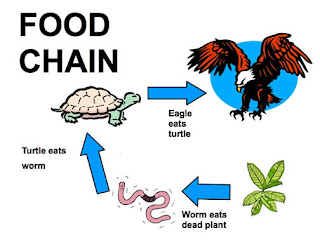I already criticized the book enough so I have no other option than to write about its meaning. Despite my criticism, there is something I found interesting, and it is the way I related the "selfishness" of the genes to the selfishness of people. However, I want to keep clear that I still think the book is very boring. I jumped to this conclusion because of the way I saw that each part of the gene or the process of each organelle and DNA work independently, on their own. Each part occupies itself on doing their job. Independently. I think that thats why Dawkins describes them as selfish, and it is because of how independent and "self centered" they are, as well as humans and animals.
This has a close relationship to humans. Of course, this does not apply to all of us, but I have to admit that most of the time we put ourselves before everything else. Its our nature: Humans are selfish, and self centered, and independent. Thats the relationship I found that we have with genes, we do everything for our own benefit and we do our part, rarely going beyond expectations to satisfy others. But I believe that society would work no other way. Yes, society is pretty messed up by now, but what if we constantly tried to satisfy others or do everything ourselves? It would be impossible. For example: Doctors are doctors, politicians are politicians, and teachers are teachers. But imagine how the society would be if we tried to be and do everything all at once. It wouldn't work because I believe we are in a way meant to be selfish and independent.
As a result, we have the whole point of the book: Evolution. Selfishness is what makes us advance, despite the fact that sometimes being selfish may not be the best option. But is this really what Dawkins means? I believe this is why he compares us so much with the animal kingdom. Its our nature.
However, Dawkins does mention how working together does help our lives (and the ones of animals), and how that is also our nature. "If animals live together in groups their genes must get more benefit out of the association than they put in. A pack of hyenas can catch prey so much larger than a lone hyena" (p.166). Here, Dawkins is saying that even though our genes are independent and selfish, as well as we are, sometimes things can be done better with some help, after all, our society not only relies on our selfishness but also on our need for help or company.
This is why I agree with Dawkins in the sense that we are very similar to the animal kingdom. By nature, we are selfish and self centered, just as animals are and function through the food chain. Ones die so others can live. Humans ourselves live in our own food cycle, each being selfish and independent to get to the top and succeed yet needing the help of others in order to live properly. That is the cycle of life, which revolves around evolution and natural selection, the mayor topic and message Dawkins wants to transmit through this boring informative book.


No comments:
Post a Comment